Basic Addition Normal Worksheets for Ages 8-9
5 filtered results
-
From - To
Discover engaging Basic Addition Normal Worksheets designed specifically for children aged 8-9! Our worksheets help reinforce essential addition skills through fun and interactive exercises tailored to match your child's developmental stage. Each sheet features varied problems, ensuring practice in basic addition concepts while boosting confidence and competence in math. These resources are perfect for both classroom settings and home learning environments. Enhance your child's math skills with visually appealing exercises that encourage critical thinking and problem-solving. Start your journey towards mastering addition today with our thoughtfully curated worksheets that make learning enjoyable and effective!
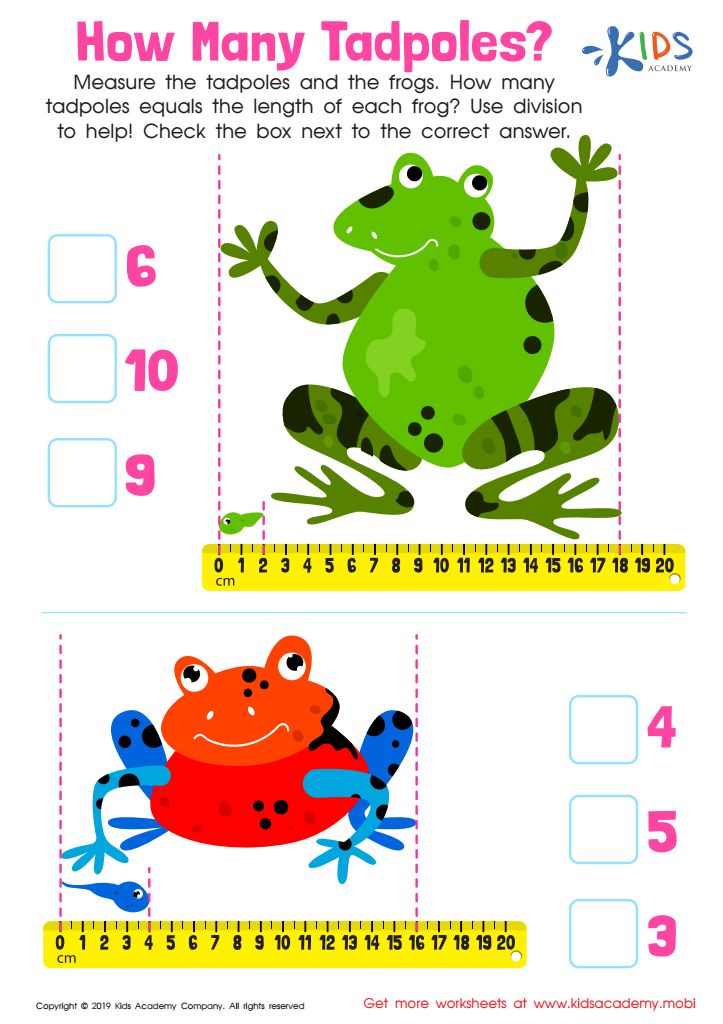

How Many Tadpoles Worksheet
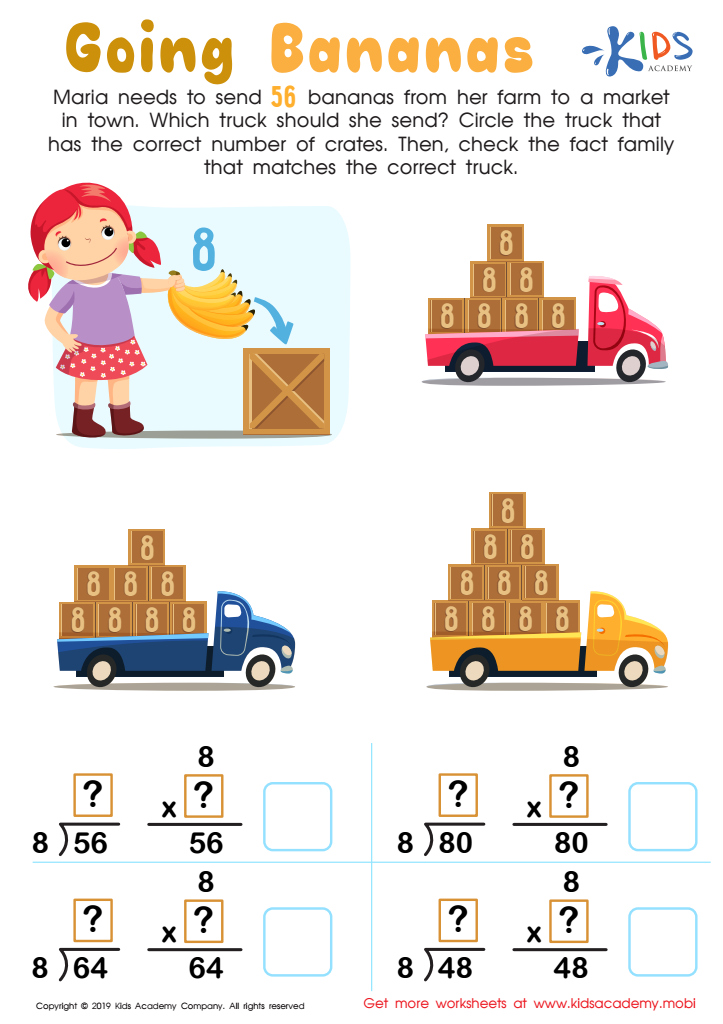

Going Bananas Worksheet
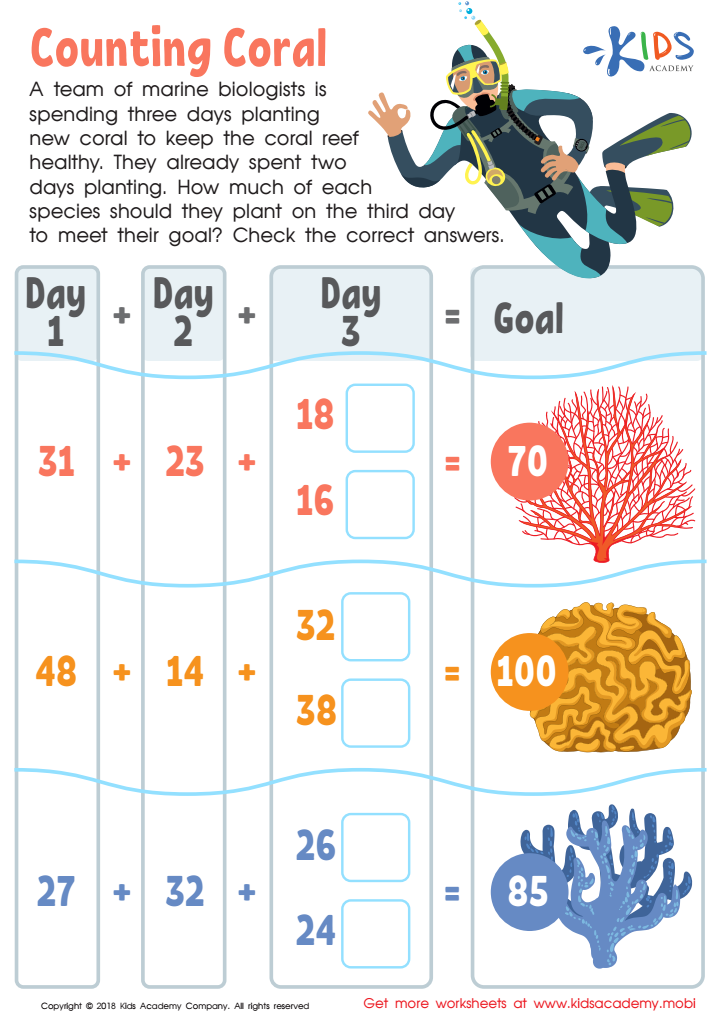

Counting Coral Worksheet
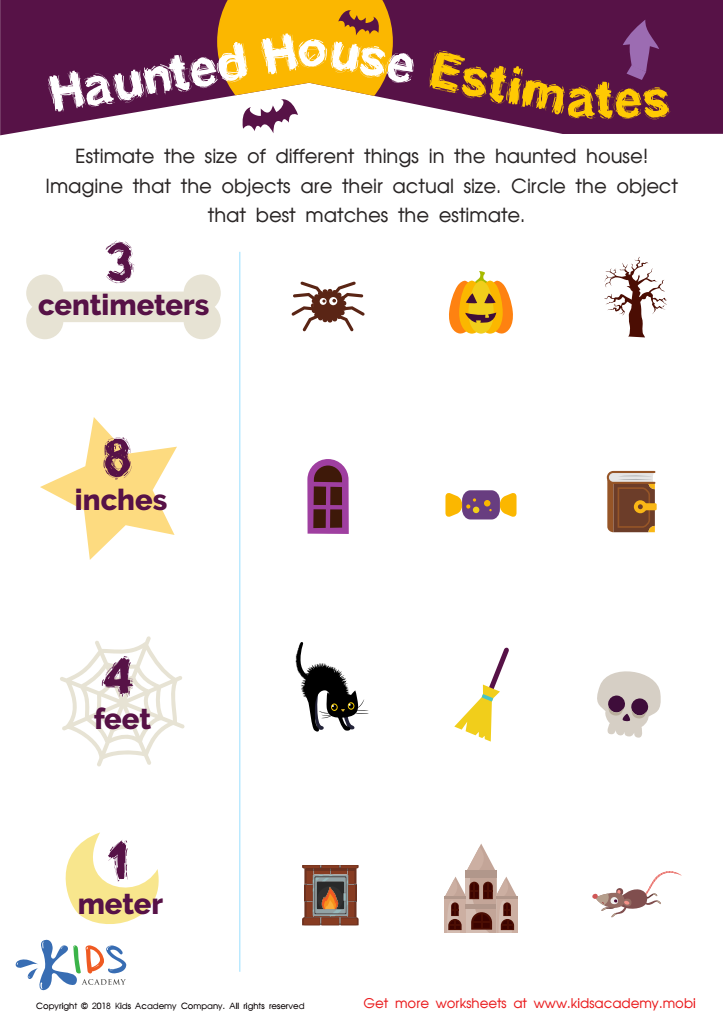

Haunted House Estimates Worksheet
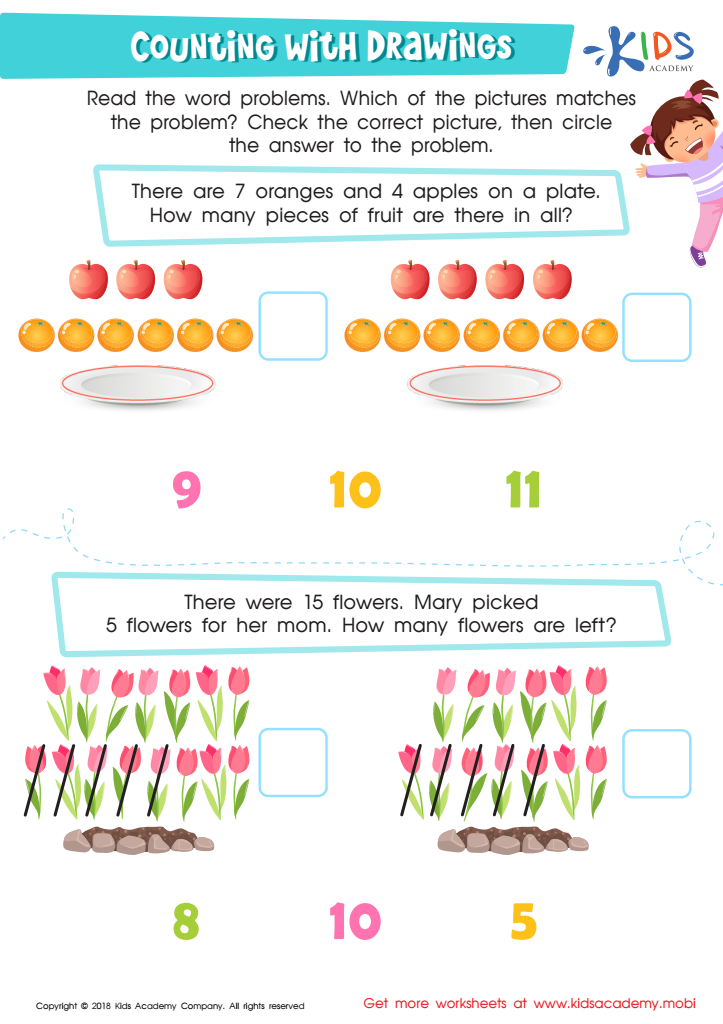

Counting with Drawings:Fruits & Flowers Worksheet
Basic addition skills are crucial for children aged 8-9, as they lay the foundation for more complex mathematical concepts. At this age, students transition from simple arithmetic to developing problem-solving skills that require a solid understanding of addition. Mastering basic addition enhances computational fluency, allowing children to tackle more advanced operations like subtraction, multiplication, and division with confidence.
Furthermore, proficient addition skills develop critical thinking and cognitive skills. When children practice and master these basic principles, they're better equipped to handle real-life situations that involve budgeting, shopping, and time management. Strong addition skills also promote mental math strategies, empowering students to evaluate problems quickly without relying solely on calculators.
Moreover, instructional support from parents or teachers reinforces positive learning habits. Daily practice can be made engaging through games or interactive activities, fostering a love for math rather than fear. When parents and teachers show interest in a child's mathematical journey, children are more motivated and likely to excel.
Ultimately, focusing on basic addition not only ensures academic success but also builds self-esteem, encourages a growth mindset, and prepares children for the mathematical challenges that lie ahead.
 Assign to My Students
Assign to My Students








.jpg)











